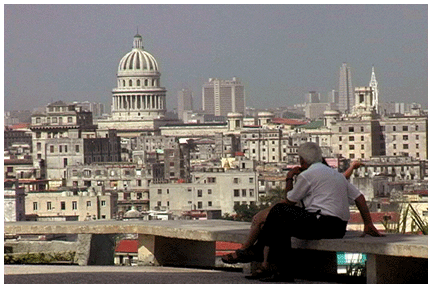Unwrapping Cuba
 In the world’s slow move towards more open and competitive markets, a few countries continue to resist change. Nominally communist and content with becoming quaint relics of a Cold War past, they have allowed the world to pass them by. Nowhere is this more apparent than in Cuba. Only 45 miles from Florida, Cuba remains mired in poverty and gross economic inequality.
In the world’s slow move towards more open and competitive markets, a few countries continue to resist change. Nominally communist and content with becoming quaint relics of a Cold War past, they have allowed the world to pass them by. Nowhere is this more apparent than in Cuba. Only 45 miles from Florida, Cuba remains mired in poverty and gross economic inequality.
However, the February 2008 election of Raúl Castro has brought some market-oriented reforms to the country, most notably a new law that will allow Cubans to buy and sell property for the first time since 1959. The free buying and selling of private property is the cornerstone of capitalism. And the legislation is expected to set off a flurry of market speculation, freeing up liquidity and breathing new life into a stagnant economy. But the enactment of this law is also significant for other reasons; a law allowing private property inherently contradicts the socialist ideology promulgated in Cuba since 1959. Are we witnessing, if only in a small way, the Castro regime admitting some failure in state-planned ‘economics’? This new right to buy property is certainly not lacking for controversy, and the legislation’s ratification was accompanied by the layoff of many state employees who opposed its passage – revealing a schism within the ruling Communist Party between those who desire reform and those who cling to the old ideals of the revolution.
Will these reforms spur the creation of a new era of openness in Cuba’s relations with the United States? Back in 2009, the Obama administration lifted travel restrictions that allowed rather free travel to and from the island for Cuban-Americans. An estimated 400,000 people made the trip that year. When visiting relatives, visitors also bring food, gifts and cash, fueling a bustling black market. Even though the US trade embargo is still in full force, both the Bush and Obama administrations have made overtures indicating the eventual loosening of restrictions. On the other hand, the Republican-controlled House of Representatives is openly opposed to any repeal, especially with the Cuban-American Marco Rubio as the Chairman of the Foreign Affairs Committee. Any loosening of the embargo appears to be off the agenda for now.
Cuba is not without hope; it is ripe for market reform. While definitely poor, the country possesses an excellent social services sector that outclasses many developed nations; the literacy rate is 99%, while the rate of infant mortality is less than that of the United States. Cuba has the basic infrastructure in place to allow the nation to smoothly become a highly-developed country.
Combined with the resources of Cuba’s huge expat population, a rapid economic expansion is not out of the question in the event of a repeal of the embargo. The island currently has a population of around 11 million people, and there are approximately 1.5 million Cuban-Americans. Any opening of the island to outside investment would create a wave of remittances, which would spur rapid economic growth.
Nonetheless, Cuba’s problems are very real, not the least of which is a long list of human rights violations and a politically active exiled population calling for restitution. Yet Raúl has demonstrated that he is much more willing to bargain with outsiders than his hawkish brother, and he is, at the very least, admitting to the need for economic reform.
Cuba’s new property law is a step in the right direction, and there is hope that it will be a critical first step in admitting that socialism on the island has failed. Many hail this moment as a critical turning point in recent Cuban history. The transition towards market-based economics is inevitable. While it is a mystery how Fidel continues – against all odds – to cling to life, he cannot (like state-planned economies) live forever. Now if only someone would tell that to Hugo Chávez.
